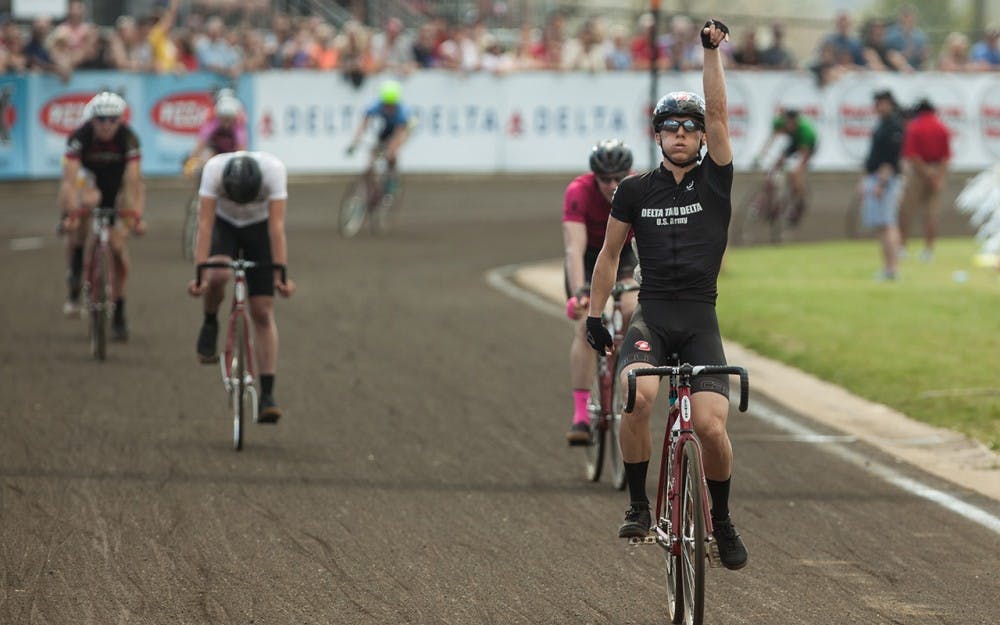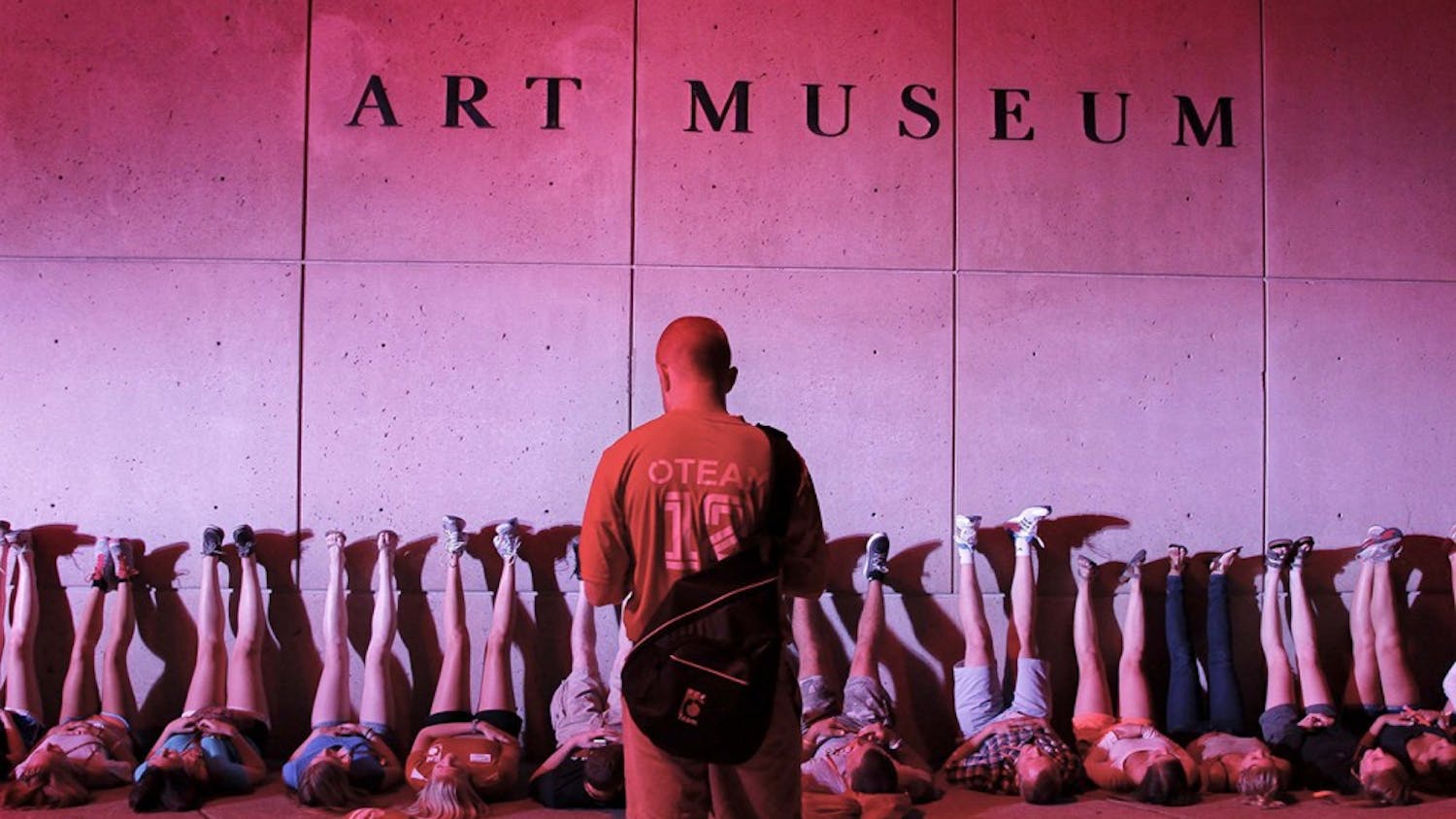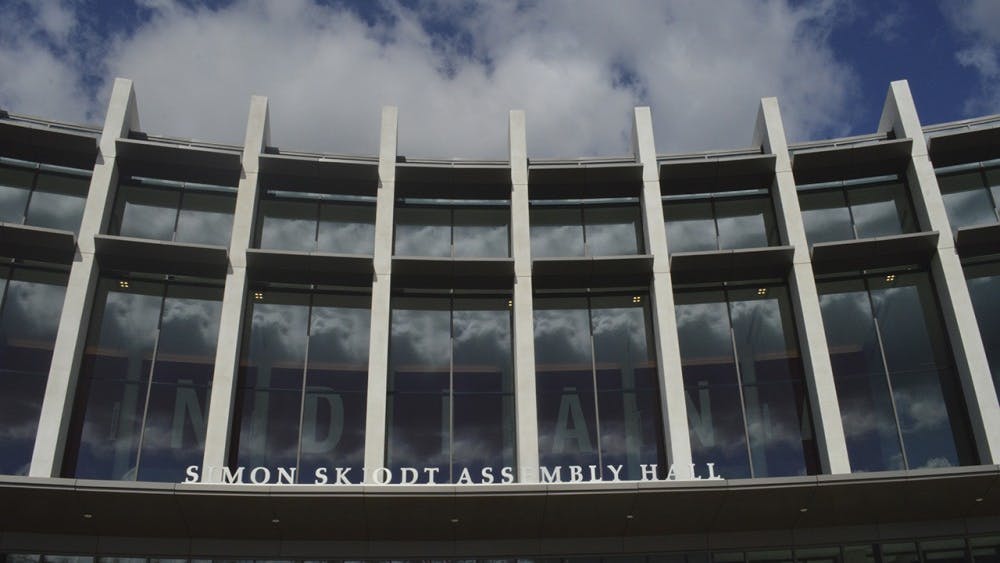Howdy Wilcox was looking for inspiration.
It was 1950, and Wilcox, the founder of the IU Student Foundation, wanted to find a way to build a sense of community within the University.
“He was really looking for a way to engage students within the University,” IUSF Steering Committee President Anne Broach said 67 years later. “He wanted to help them feel like they were part of something and giving back to the University.”
That fall Wilcox came across an informal bike race of students living in Hickory Hall, Broach said. They had a crowd cheering them on. Wilcox, the son of a racecar driver who’d won the Indianapolis 500 in 1919, had his idea.
The next year, according to the IUSF’s website, 7,000 students attended the first Little 500 race.
Since then, Broach said it’s become a cultural event that regularly draws 25,000 attendees and has raised millions of dollars for scholarships.
The race — the largest collegiate bike race in the country, according to the website — pits teams of four against each other in a miles-long race around Bill Armstrong Stadium’s quarter-mile track. The men’s race is 200 laps, or 50 miles long, and the women’s is 100 laps, or 25 miles.
The Little 500 has grown in both scope and cultural capital over the past half-century. The 1970s and 1980s in particular saw a handful of events now considered milestones in the race’s history. In 1979, the film “Breaking Away,” which depicted a fictionalized version of the race, was released to box office success, critical acclaim and, eventually, a slew of Academy Award nominations.
Steering Committee Vice President Brad Yu said the first independent team — that is, one not associated with a fraternity — participated in the race in 1984. Broach said the majority of teams are still affiliated with greek life, but the balance has shifted. Of the 77 teams registered for the 2017 race, 54 were greek-affiliated, two were affiliated with residence halls and 21 were independent, she said.
Two thousand seventeen marked the 30th anniversary of a particularly significant update to the race, Yu said: the women’s bike race, which will take place April 21 this year. The men’s race will be the following day.
Broach said the race has gained a reputation as the center of a party weekend.
“Someone who’s not involved in the student foundation would probably call it the greatest college weekend in the country,” Broach said.
However, she said she hopes people also realize the race’s other significances. Its ticket sales fund student scholarships, with a total of more than $2 million raised since the race’s inception, she said, and riders spend the whole year leading up to the race preparing.
“I think it’s really important to all of us in Steering Committee to let people know that the bike race is a lot more than a reason to party,” she said.






